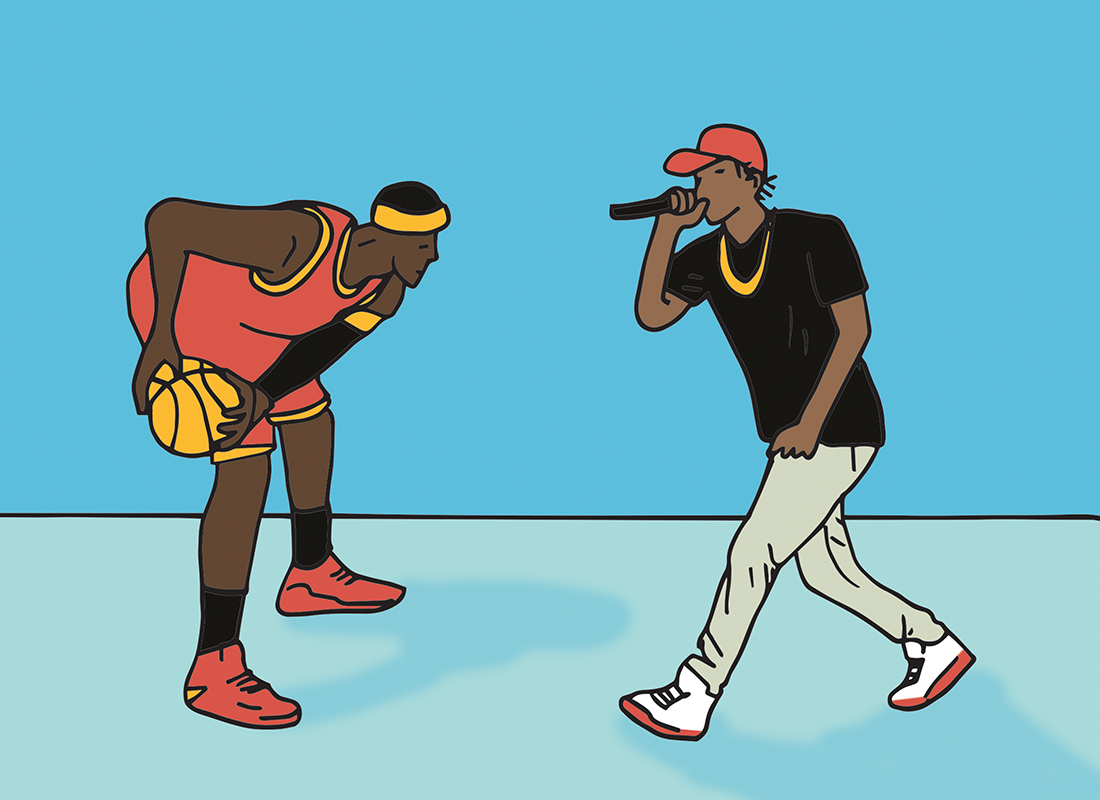The culture of rap music is felt, even in sport
Basketball has always had a strong connection to the hip hop community, beginning all the way back in 1979, when Big Bank Hank of the Sugarhill Gang bragged about watching the New York Knicks on his colour TV in “Rapper’s Delight.”
From then on, the connection strengthened as hip hop’s popularity grew in the 1990s. That era saw the “Fab Five” Michigan Wolverines basketball team adopt personas similar to rappers for the first time, wearing loose and baggy basketball shorts and black socks. Allegedly, they would end timeouts by quoting the Geto Boys’s “Gotta Let Your Nuts Hang.” This era also saw basketball players such as Shaquille O’Neal making rap albums.
Today, both the rap and hip hop communities are highly intertwined, with players like Damian Lillard being recognized for their musical abilities. Lonzo Ball also releases music inspired by the artists he listens to and enjoys the most, namely Migos and Drake. Jay-Z became the first rapper to co-own an NBA team, the Brooklyn Nets, and Drake is currently the Toronto Raptors’s “Global Ambassador.”
Countless NBA players and teams have been referenced in rap songs. Today, the influence of hip hop culture in the NBA is more widely accepted, but this was not always the case. In the dark ages of former NBA commissioner David Stern’s seemingly endless tenure, there was an attempt to majorly distance the league from this hip hop image, as he believed it tarnished the league’s reputation.
As the era of gangster rap led to the rap industry growing even more popular, NBA players followed the inspiration of prominent rappers of the time. As baggy pants, oversized T-shirts, chains and do-rags became the style in rap, players followed suit. This was not well-received by most NBA league management, owners or coaches.
Legendary coach Phil Jackson commented in 2005: “The players have been dressing in prison garb for the last five or six years.” Opinions like this caused the NBA to throw the hammer down on Dec. 17, 2005, and completely overhaul the NBA dress code. Headgear, T-shirts, sunglasses, chains and many more hip hop related items were banned in favour of “business casual” attire.
Just like that, the NBA was the first professional sports league to have a dress code. This was largely used to target one player in particular, Allen Iverson, especially during his prominence in the early 2000s. He was an NBA superstar who was seen by many as the first person to bring this style to the league. As a player, Iverson was exceptional, but off the court, Stern did not like the way he dressed, his tattoos and especially his attempted gangster rap career under the name Jewelz. Stern described his music as “coarse, offensive and anti-social.”
It is apparent now that the dress code backfired on Stern, because in the years since, players such as Russell Westbrook have taken style to a level unimaginable by Stern back in the early 2000s. Westbrook mixes and matches business attire with more traditional hip-hop street wear, a style several NBA players have adopted since. The NBA dress code administered by Stern still stands today, but the rules apply to an outdated era of hip hop style.
Graphic by Zeze Le Lin




